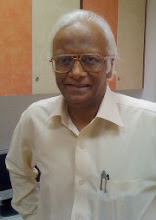
 Priyanka Banerjee, Meenakshi Rohatgi, Nimit Agarwal
Priyanka Banerjee, Meenakshi Rohatgi, Nimit Agarwal(priyankabenji@gmail.com, meenakshi.rohatgi@gmail.com, nimit.agarwal@gmail.com)
“As journalists, it is your job to raise questions. Always have a doubtful mind and be ethical and polite.” That was Gautam Adhikari’s farewell massage to TSJ students.
In India, the ethical model is still in the development stage. If we compare journalism in India to that of the US or the UK, there is a vast difference because the process of selection there is stringent first of all, and secondly, a lot of time and money is spent on the training of journalists. “Most importantly, they are taught what should be filtered out from a haystack of information, and what should be left out.”
Though the training process is picking up in India with many institutes opening, it is still in its nascent stages. Indian journalism is grappling with a lot of issues such as stringent norms for standards and code of conduct, and the growth of numerous media companies giving rise to heavy competition.
“The most common mistake people make is to classify different kinds of media as a single entity.” Newspapers, television, internet and radio are entirely different in the ways of functioning, the audience, style and focus. “People blame the entire media universe, when say a TV channel has made a blunder.”
The entire media was blamed for the way the Aarushi murder case was reported, even though newspapers were careful about handling the events, while certain television channels went overboard. “It is true that some channels were way ahead in investigation, but it is imperative on the part of the journalist to be wary of people who might be giving statements for their own benefit. Hence the importance of questioning and cross questioning. Producing both sides of any story is the mandate of the reporter.”
Because the legal system in India is very slow, with many potholes, many journalists get away with a lot. While in countries like America, legal system is quick and hence journalists tread carefully on the lives of other people.
The question what is public and what is private is being redefined now. Our media is in the phase of “conceptual transition”. “It eventually boils down to competition, as any kind of ‘market economy’ cannot escape from pecuniary goals.” Especially in television, the pressure and competition is huge as the business is all about “eyeball catching”. Hence in the flurry of the moment, certain news channels might compromise on ethics blindly catering to the animal hunger for sensationalism. Though one cannot escape competition, one can still set a code for conduct. “The editor of a newspaper or a news channel should act as the final gatekeeper before the news is presented to the public.”
Gautam sums up his advice to media students thus:
- Keep an open and fertile mind
- Be a voracious reader
- Always ask the ‘right’ questions
- It is important to read history and economics of your country as well as the world
- Remember that you are just the ‘media’ – the plural of ‘medium’ – for news to reach the masses. We are just the “mirrors of the world around us”, and thus it is essential that we are good communicators.

No comments:
Post a Comment